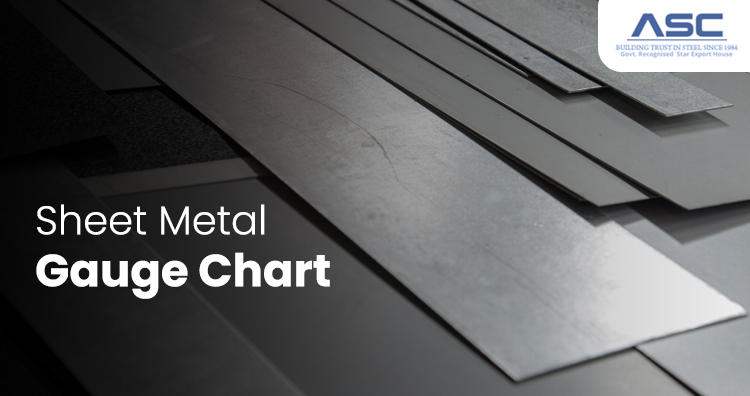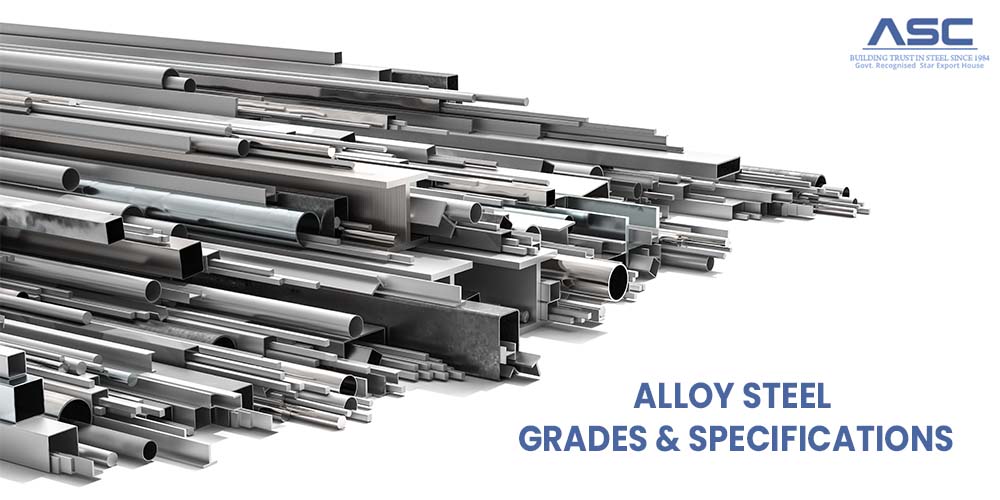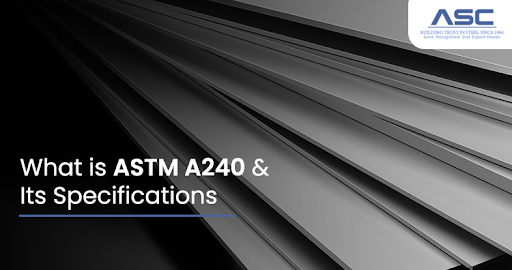What is Alloy Steel | Types, Properties, Applications & Grades
by AMC
Posted on January 24, 2023 at 13:40 PM

What Is Alloy Steel?
Alloy steel is made by combining a number of different elements, such as silicon, chromium,
molybdenum, boron, vanadium, nickel, aluminum, etc. These alloying elements make the alloy steel
stronger, tougher, harder, and more resistant to wear. Some of the elements that can be added to an
alloy and what they do are shown below.
Common Steel Alloying Elements
When it comes to steel, a lot of different things can be added to the base material, which lets the
buyer change things until the right alloy is found. Some common elements that are used to make
alloys are:
- Manganese: When small amounts of sulphur and phosphorus are added to it, manganese makes the steel alloy less brittle and easier to hammer.
- Chromium: A small amount (0.5% to 2%) can help make the alloy harder, and a larger amount (4% to 18%) can also stop corrosion.
- Vanadium: Just 0.15% of this element is enough to improve strength, heat resistance, and the structure of the grain as a whole. When chromium is added to the steel alloy, it makes it much harder but keeps its ability to be shaped.
- Nickel: Up to 5% of this alloying element, will make steel stronger. It has a corrosion resistance that is very good at more than 12%.
- Tungsten: Increases resistance to heat, which makes the melting point higher. It also improves the way the steel is put together.
Types of Alloy Steel
Alloy steel is made by mixing
steel with a number of other elements to give it new properties and
traits. It is divided into two types based on how much of each element is used to make the alloy
steel, which can be anywhere from 1% to 50%. Two groups of alloy steel will be mentioned in the
flow.
High-Alloy Steel: It has a lot of elements that make it stronger. Most high alloy
steel is
stainless steel, which can have as much as 12% chromium in it. The latent layer is a thin layer
of oxide that chromium makes on the outside of the steel. The high amount of chromium protects
against erosion for a long time. This alloy is a bit more expensive than low alloy steel.
Because of this, it is mostly used in cars and industrial machinery.
Low-Alloy Steel: It has between 1 and 5 percent of alloying elements, which is less
than high-alloy steel. Depending on the alloy, this steel has different strengths and can be used
for different things. Also, this type of alloy is used in large flanges to get certain mechanical
properties. So, low alloy steel can be used for a wide range of projects in many different
industries, such as making studding outlets and seamless rolled rings.
Tip : You can read our in-depth Blog about the - Difference
Between High Alloy Steel and Low Alloy Steel
Alloy Steel Properties
| Element | Symbol | wt. % | Function |
| Aluminium | Al | 0.95–1.30 | Alloying element in nitriding steels |
| Bismuth | Bi | – | Improves machinability |
| Boron | B | 0.001–0.003 | Improves hardenability |
| Chromium | Cr | 0.5–2.0 | Improves hardenability |
| 4–18 | Corrosion resistance | ||
| Copper | Cu | 0.1–0.4 | Corrosion resistance |
| Lead | Pb | – | Improves machinability |
| Manganese | Mn | 0.25–0.40 | Prevents brittleness in combination with sulfur |
| >1 | Increase hardenability | ||
| Molybdenum | Mo | 0.2–0.5 | Inhibits grain growth |
| Nickel | Ni | 2–5 12–20 | Increases toughness Improves corrosion resistance |
| Silicon | Si | 0.2–0.7 | Increases strength and hardenability |
| 2 | Increases yield strength (spring steel) | ||
| Higher % | Increases magnetic properties | ||
| Sulfur | S | 0.08–0.15 | Improves machinability (free-machining steel properties) |
| Titanium | Ti | – | Reduces martensitic hardness in Cr steels |
| Tungsten | W | – | Increases hardness at high temperatures |
| Vanadium | V | 0.15 | Increases strength while maintaining ductility, promotes fine grain structure |
Tip: You can read our in-depth Blog about the -Properties & Uses of Alloy Steel
What is the Alloy Steel Used for?
Different kinds of alloy steel can be used to make a huge number of different things. There are
alloy steel pipes and tubes, alloy steel plates, sheets, and coils, alloy steel bars, rods, and
wires, alloy steel forged fittings, alloy steel buttweld fittings, alloy steel flanges, fasteners,
and more. Alloy steels are used in many different industries, like cars, mining, machinery and
equipment, railroads, road building, buildings, appliances, and even off-shore applications.
Applications in Building Large Structures
In the building and construction industry, steel skeletons made of alloy steels are used for very
large modern structures like airports, bridges, skyscrapers, and stadiums. Alloy steels have the
high strength needed to hold up such big buildings. Even structures made of concrete use alloy
steels as reinforcements to make the structures stronger and lighter. Alloy steel is also used to
make small things like screws, nails, and bolts.
Applications in Building Bridges
Weathering steels, which are a type of alloy steel, are used to make bridges. Because nickel,
copper, and chromium are used as alloying elements, these offer better protection against corrosion.
Weathering steels are also used on the outside of buildings to make them look better. Weathering
steel has a lot of benefits, such as high safety, easy and quick construction, good looks, shallow
depth, low maintenance, and the ability to be changed in the future. Due to the way it naturally
ages, it doesn't need to be painted, so it doesn't cause environmental problems like paint does. In
the long run, weathering steels saves a lot of money.
Alloy Steel Flat Products
Alloy steels are used to make plates and strips, which are flat items. There are many different
grades and sizes of plates. By welding plates together, these are made into sections that are used
in building.
Alloy Steel Strip and Coil Products
Strips can be rolled hot or cold, and they can also be galvanized by being dipped in hot water.
Hot-dipped galvanized coils are used to make building materials like wall and roof claddings, side
rails, roof purlins, light steel frames, and lintels.
Alloy Steel Long Products
Alloy steels are used to make long products like girders, structural sections, bars, rails, rods,
and wires that are used in the building industry.
Alloy Steel Flanges
Flanges made of alloy steel are used to make another important thing. These are used in pipes made
of stainless steel. These flanges can be made in different ways to fit different needs. Some of them
are weld neck flanges, which have the same thickness and bevel as the pipe and can work well in
harsh conditions like high pressure, high temperature, or temperatures below zero. Lap joint flanges
are slip-on flanges that can be used with alloy steel pipes that need to be checked and maintained
regularly.
Alloy Steel Pipe Products
Alloy steel pipes are an important part of the building and construction industry because they are
flexible, easy to fix without heat treatment, and last a long time. They are made of a mix of
nickel, chromium, and stainless steel. Large-diameter welded pipes, electric fusion welded pipes,
welded pipes, and seamless pipes are some of the special kinds of alloy steel pipes. In addition to
high-pressure situations, they are also very useful in high-temperature or corrosive situations.
What Grade is Alloy Steel?
|
||||||||||||||||||||||||||||||||||||||||||||||||||||||||||||||||||||||||||||||||
What are the advantages of alloy steel?
Whether your project needs advanced corrosion resistance, the ability to be machined, strength, or a
number of other features, there is an alloy steel that has what you need. With some extra heat
treatment, alloy steels can have a lot of good qualities, such as:
- Increased ability to get harder
- Stronger and harder than most
- Unique alloyed features
Does Alloy Steel get rusted?
First of all, it depends on if you mean "rust" or "corrode." Corrosion is a type of oxidation, while rusting is a type of corrosion. If a metal alloy has iron in it, it will rust. All alloys can corrode. When we expose metal to air and water, a layer of iron oxide forms on the surface. Corrosion happens when we put metals in the air or near chemicals. This makes metal oxides or salts form.
Find the Steel Alloy You Need ?
Searching for premium alloy steel products? Amardeep Steel stocks a wide selection of steel alloys in the shapes and sizes you need. We also provide metal cutting services to make purchasing easy and convenient. Get a steel alloy quote today.

Sheet Metal Gauge Chart
When working with sheet metal, the term "gauge" is commonly used to describe the thickness or thickness range of the material.

